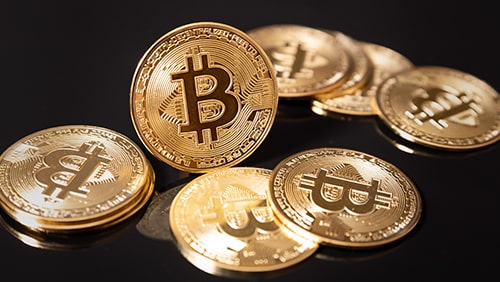Even Halloween is becoming digital, just like so many other aspects of everyday life. The annual spooky holiday is usually filled with ghosts and goblins (and Baby Yoda) walking the streets and knocking on doors to see who can score the most, and best, candy. However, everything changes at some point and there’s a new rival to sweets that, to many, is much more appealing. Move over candy – digital currency is now being handed out on Halloween.
 He may not be the first to come up with the idea, but Canadian Brad Mills decided to hand out digital currency when trick-or-treaters came knocking on his door this year. He tweeted about his idea, even showing the reaction of one youngster as he realized what he had received. There’s a lot to be said about digital currency when a 10-year-old yells, “Dude I just got Bitcoin!” after seeing what he has scored in his bag of goodies.
He may not be the first to come up with the idea, but Canadian Brad Mills decided to hand out digital currency when trick-or-treaters came knocking on his door this year. He tweeted about his idea, even showing the reaction of one youngster as he realized what he had received. There’s a lot to be said about digital currency when a 10-year-old yells, “Dude I just got Bitcoin!” after seeing what he has scored in his bag of goodies.
Mills, who had left a box of treats on his doorstep to adhere to social distancing protocols, reportedly gave away $200 in digital currency gift cards – two worth $100 each. He also gave away candy, but the gift cards were definitely the highlight of the evening. While the lucky recipients most likely won’t be able to convert them into cash for a number of years, due to age requirements, at least they’ll learn the value of saving. If they decide they would prefer a new gaming controller, they could hit a digital currency ATM, or they could decide to spend it at any of a number of eCommerce shops, but storing it would be a smarter option at this point.
The fact that the trick-or-treating age group knows what Bitcoin is speaks volumes of what’s to come. Millennials and Gen Z-ers will grow up in an age that welcomes all things digital, from Alexa controlling the home to how monetary transactions are conducted. The groundwork is already in place, and the next several years are going to see a substantial increase in awareness and adoption of digital assets. Those that are already helping the transition move forward are rewriting financial history for generations to come.
This process won’t happen overnight, just like it hasn’t happened overnight with any monetary system – the U.S. dollar needed 100 years before it became accepted around the world. However, digital currency has found its place much quicker, and the fact that it is becoming regulated by governments shows how legitimate it has become. Add to that the acceptance by younger generations, and it becomes easy to realize that, in less than a decade, digital currency will be everywhere consumers want to be. The gambling industry has already realized its potential, and most online operators now accept digital currency alongside fiat. This trend is gaining steam and more gamblers are finding out that it’s much easier to use digital money than any other alternative. It’s not unrealistic to envision a time, in the very near future, that digital currency vastly outperforms fiat in most consumer segments, especially gambling.